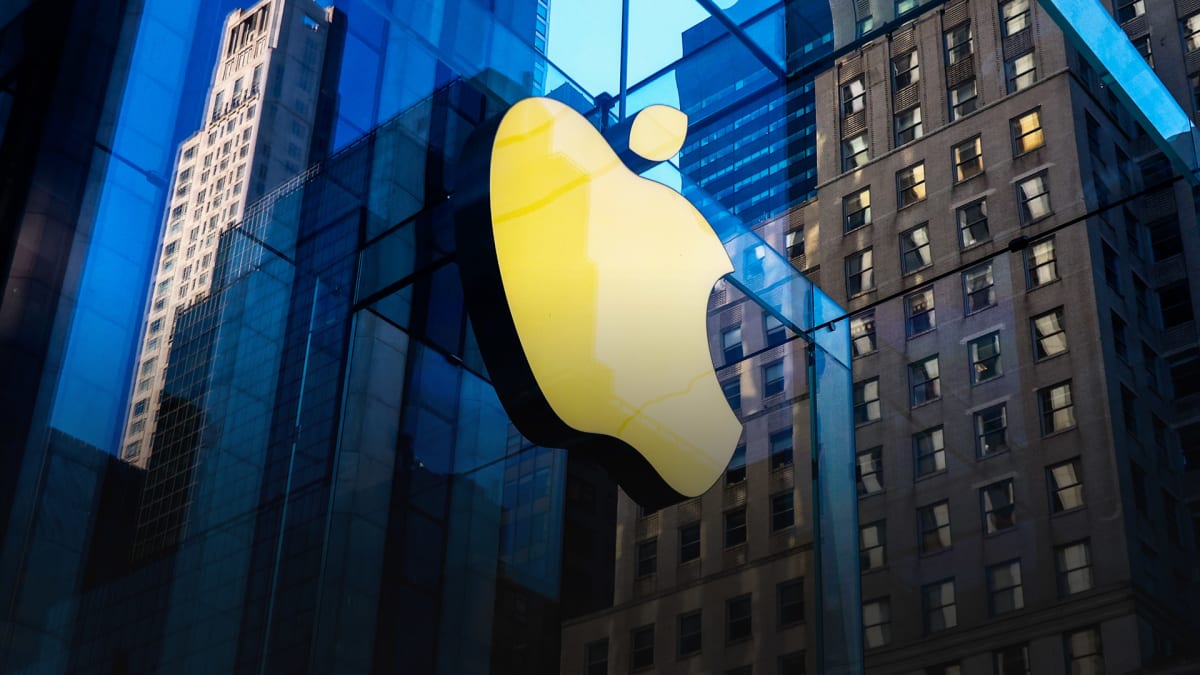
Apple is positioning itself to find another important growth driver.
The iPhone maker has just opened its first-ever physical store in India, betting big on the world's second-largest phone market.
This first Apple Store, called Apple BKC, is located in Mumbai, the country's economic center. And in two days, the iPad manufacturer, which has been present in India for more than 25 years, will open a second store in the capital, Delhi.
Signaling the importance of the Indian strategy, CEO Tim Cook, wearing a dark polo shirt and light-colored trousers, opened the doors of the store after a count from employees, who wore green shirts.
"The energy, creativity, and passion in Mumbai is incredible! We are so excited to open Apple BKC — our first store in India," Cook said on Twitter, with a photo of the event.
India Is 'a Strategic Poker Move': Wedbush's Ives
"Apple BKC features more than 100 team members who collectively speak over 20 languages," the company said in a news release. "They’re ready to welcome customers from around the world, helping them learn about Apple products and offering advice on the best options to suit customers’ needs, as well as the Apple Trade In program."
The opening of the first Apple Stores in India comes after the group satisfied the demands of the local authorities, in particular with regard to sourcing some products locally.
Apple has had to work hard to get into India. It had planned to open its first physical store in the country right after its online store launched in 2020, but that was delayed to 2021 and again to 2022.
India has strict requirements for foreign companies, which prevented Apple from having a significant presence there. iPhones had to be made in India, and 30% of products sold in stores were also to be made there. This last requirement was dropped as Apple began manufacturing the iPhone locally.
Apple hopes that the country of 1.4 billion people will allow it to boost its sales and diversify its manufacturing chain beyond China.
"Apple is aggressively looking at India retail expansion over the coming years that we believe will be a strategic poker move that could ramp annual revenue to $20 billion by 2025 in India vs $6 billion today," Wedbush's analyst Dan Ives commented.
The Indian mobile-phone market has seen a steady rise in the past five years, barring the covid-19-hit in 2020, Counterpoint Research says. The market is projected to grow 10% in 2023 to reach 175 million units.
This market is currently dominated by Samsung (SSNLF) and China's Xiaomi (XIACF) , which offer phones under $400. Only about 4% of India's nearly 700 million smartphone users have iPhones, according to Bloomberg News.
The Rise of the Middle Class
The Cupertino, Calif., group is banking on the rise of the middle class and young people who are willing to pay more for phones. Apple shipped about 6.5 million iPhones to India last year, a fraction compared with the U.S. and China where the figure hits 50 million.
Apple's offensive in the country is also taking place on the production front. The company is expanding its manufacturing capacity, tripling its production to more than $7 billion of iPhones in its most recent fiscal year.
Last year, Apple broke with tradition, having the iPhone 14 manufactured immediately in India as soon as it was unveiled. The decision suggested that Apple had learned from the disruption at its Chinese supplier, Foxconn's Zhengzhou factory, due to covid-19 and employee protests.
The company wants to diversify its production chain and depend less on China. Apple also wants to take advantage of the red carpet that government of Prime Minister Narendra Modi is rolling out to multinationals in its desire to present India as an alternative factory location to China.
Piyush Goyal, India's minister of commerce and industry, said last January that Apple planned to produce 25% of its iPhones in India.
India's production-linked incentives offer subsidies equivalent to 4% to 6% of production costs for five years once certain criteria are met.
About 3 million iPhones were made in India in 2021, compared with 230 million in China, according to Bloomberg Intelligence estimates. Apple's contract manufacturers build iPhones at plants in southern India.







